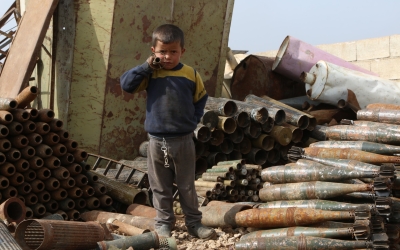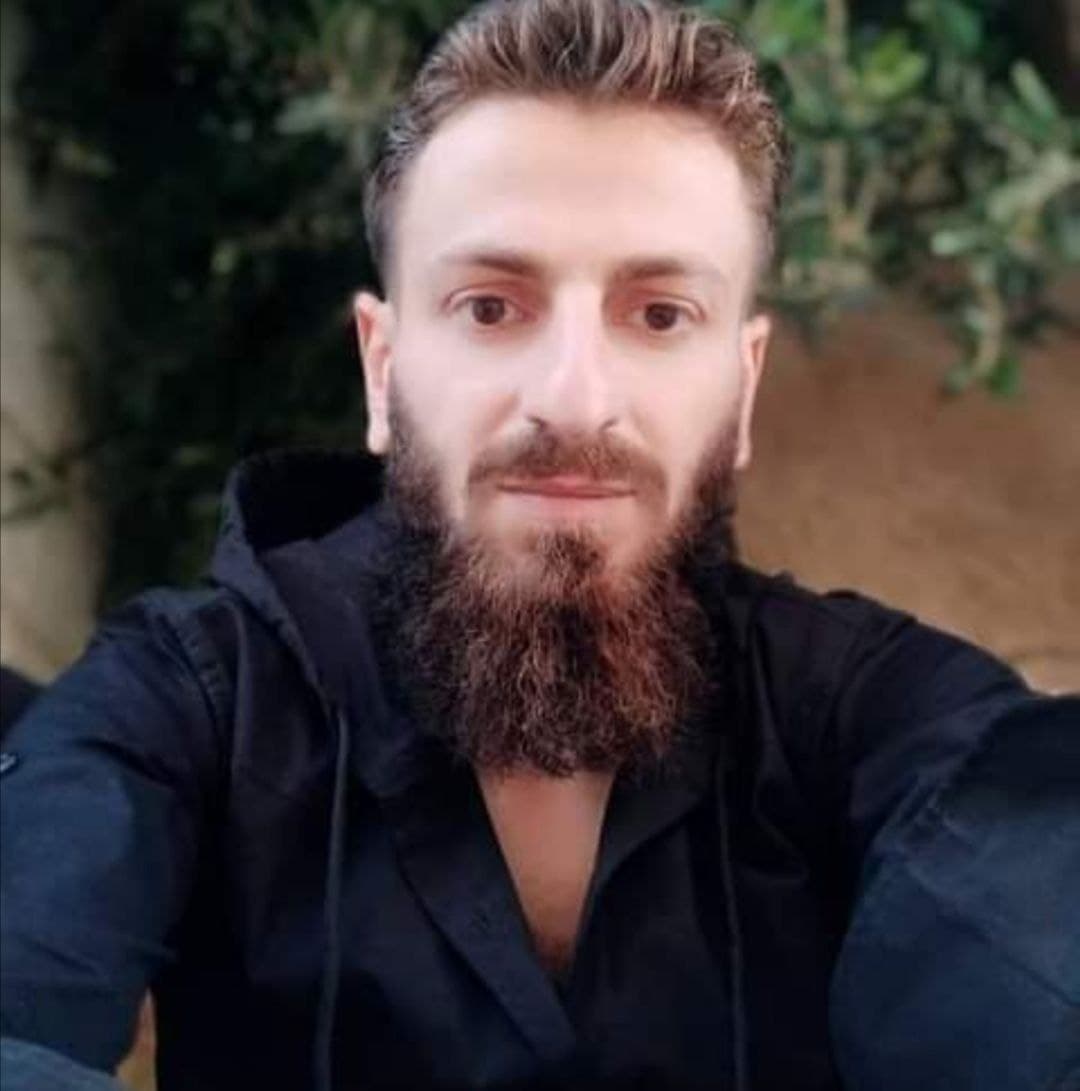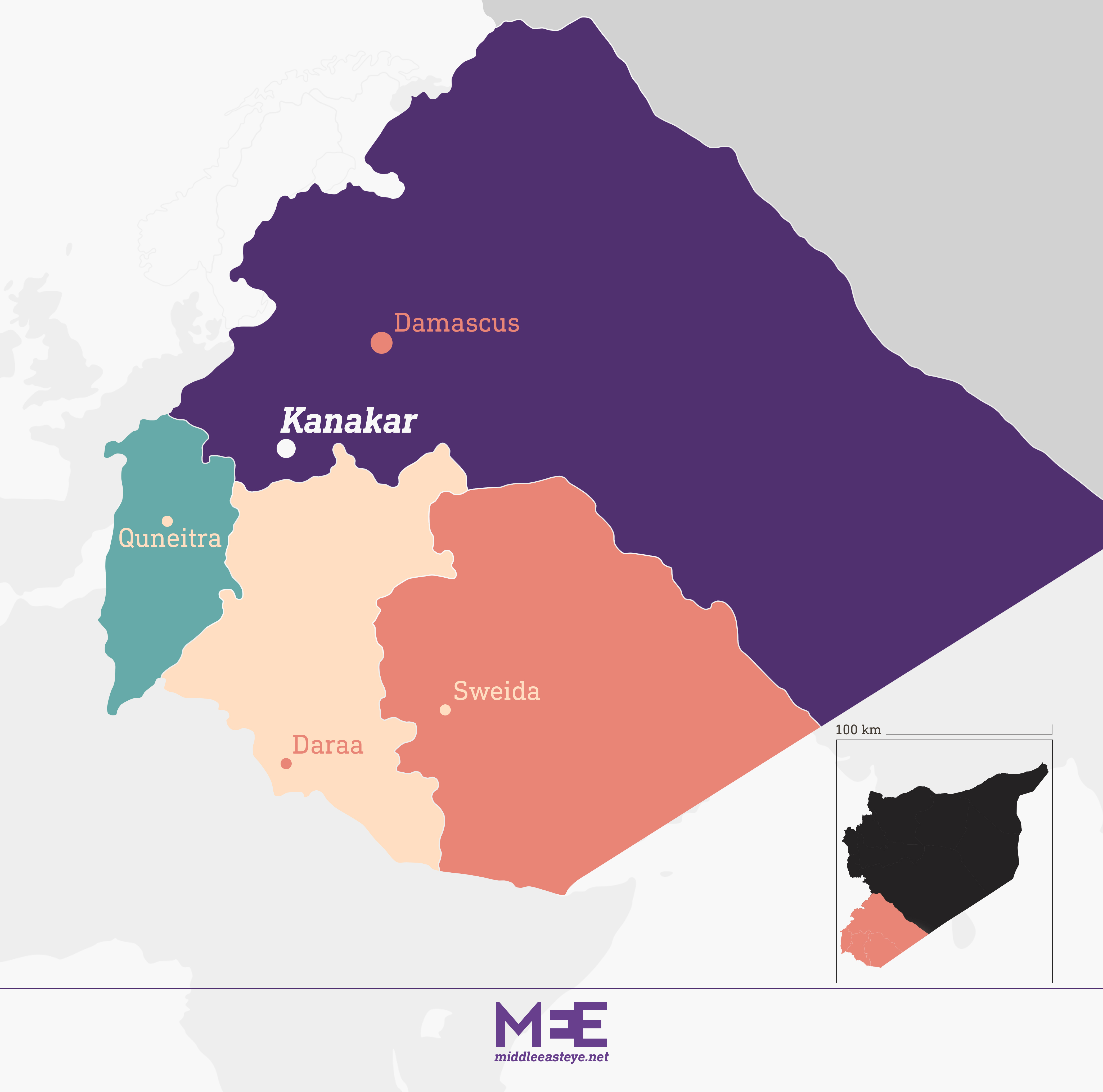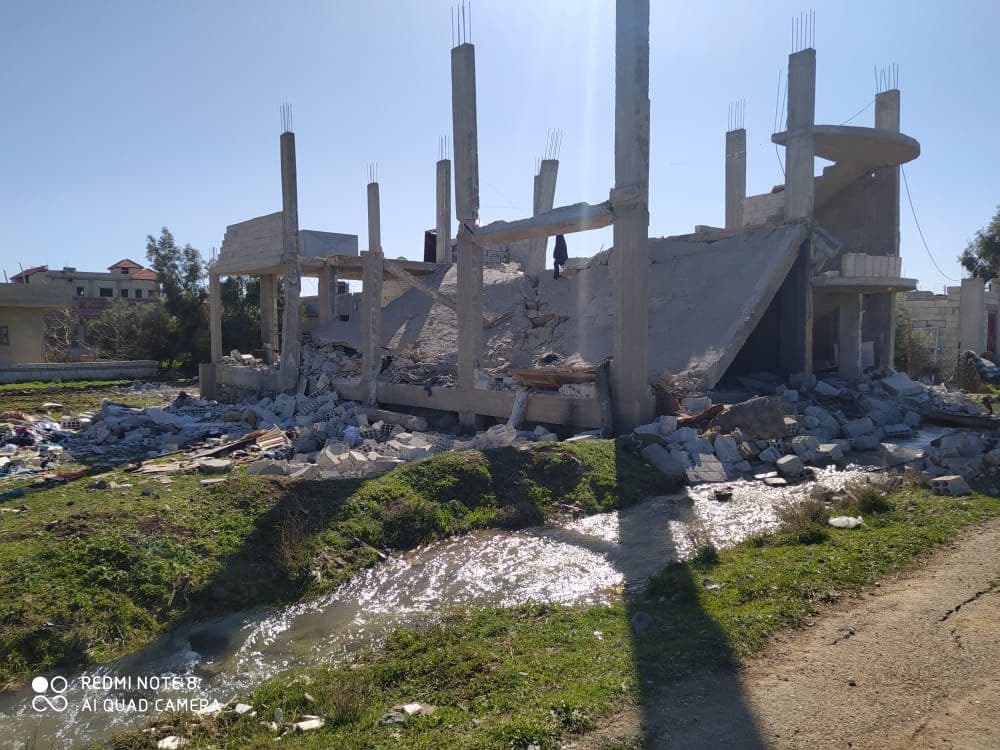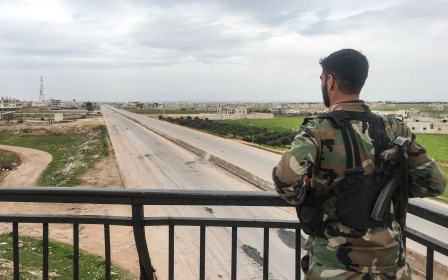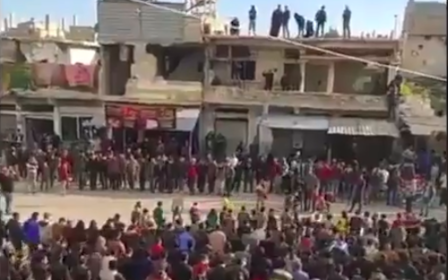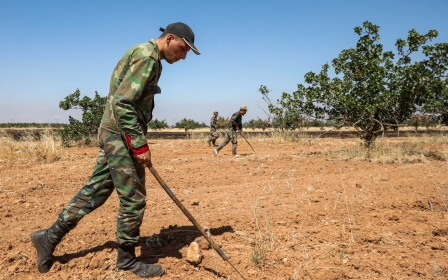How Syrian intelligence tried to seize a strategic village through assassinations
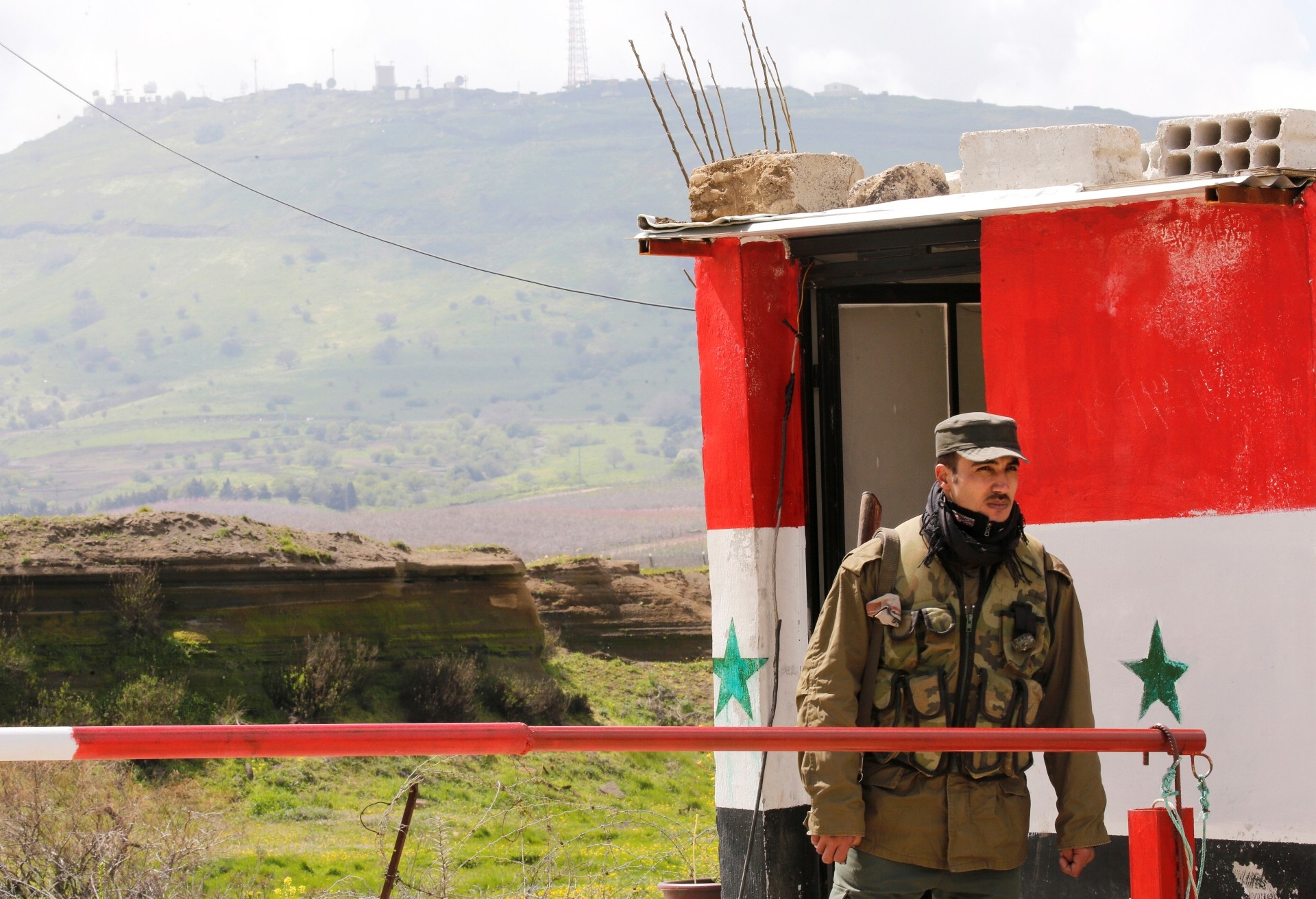
Earlier this year, an unfamiliar car rolled into the Syrian village of Kanakar, a former rebel stronghold southwest of Damascus that serves as a gateway to Daraa province.
It was there to meet a former rebel called Abdo al-Hori, better known as al-Berri, who knew neither the car nor its passengers.
According to Middle East Eye’s sources, al-Berri was blindfolded, eased into the back of the car and taken to a man called “the Engineer”, a brigadier general in Military Intelligence Branch 215 with a fearsome reputation for torture.
In an office, the sources said, the Engineer laid out his wishes: al-Berri was to recruit a team of 12 agents to assassinate 22 influential civil society leaders.
“The eyes of al-Berri and someone else brought with him were completely covered throughout the hour-long meeting,” a source with knowledge of the meeting told MEE. All sources spoken to about details of the meeting and its outcomes did so strictly on condition of anonymity for security reasons.
Al-Berri denies this meeting took place and that he was involved in any assassinations.
Sources say some of those marked for assassination were influential elders, who led negotiations between the rebels and Syrian government forces when Kanakar fell to Damascus in late 2016 and have exclusively held sway in the village since.
Others were former rebels who refused to escape to opposition-held northern Syria when Kanakar fell and who didn’t regularise their status with pro-government forces.
The campaign has already begun.
On the dark night of 7 February, Naeem Abdul Rahman Zamil, a former rebel, was killed in the middle of his village, shot four times by assailants. One person with him was wounded.
The murder caused shockwaves in Kanakar. Hundreds attended the funeral of Zamil, who was a commander in the al-Furqan Brigade that held the village until 2016, calling for revenge.
And former rebels heeded that call. Soon after, they demolished the homes of three men believed to have carried out the killing, who fled to the village of Shebaa, east of Damascus.
At the time, pro-government forces largely ignored the incident, fearing escalation.
But it was not forgotten, and military intelligence recently issued a list of 100 former rebels it wanted detained over the incident, including those who demolished the homes.
Three of them were arrested on 15 March, among them Zamil's brother, following clashes in which authorities claimed to have killed three others planning attacks in the capital.
Now there is a cautious tension in the village.
Gateway to the south
Kanakar is a highly strategic village an hour’s drive from Damascus, lying on roads that can give the capital access to Quneitra to the west and Daraa to the south.
Since 2016, the Syrian government’s presence in the village has been minimal. Much of its administration lies in the hands of former rebels and elders that reconciled them with Bashar al-Assad’s government as the opposition in the south crumbled.
In some former rebel strongholds, the government has made inroads. In others, like swathes of Daraa, where tit-for-tat killings between ex-rebels and pro-Assad forces rumble on, control is fleeting.
Last year southern Syria saw 105 assassination attempts, mostly targeting former rebels and killing 66 people, according to the Daraa Martyrs Documentation Office NGO.
"These numbers are for deliberate assassination attempts and do not include direct attacks, such as those that resulted in the killing of 21 pro-Assad fighters in mid-March," Mohammed al-Shara, a member of the Daraa martyrs office, told MEE.
The Engineer believed it was time to cement the military intelligence’s role in Kanakar. Sources said he thought a campaign of assassinations and random bombings would sow discord, discontent and chaos in the village, at which point Assad’s security services could step in.
Tensions had blown up in the village on 21 September, when government forces besieged it for three weeks trying to flush out former rebels that attempted to assassinate Brigadier General Ali Saleh, head of the Military Security Branch in Quneitra.
The agents that the Engineer sought to recruit were for the most part ex-rebels who over the past three years had been part of the Iran-backed 4th Division, led by Maher al-Assad, the president’s brother.
These former rebels, sources said, are mostly found stationed at a checkpoint and the 4th Division’s main office.
"They drew attention, a lot of attention. They were ineffectual former rebels known for thefts, fighting only when money was available like mercenaries," a second source told MEE.
“This bad reputation put the agents in a very good position for dirty work.”
According to MEE’s sources, al-Berri was informed in the meeting that he would receive explosive materials, light weapons and silenced pistols to carry out the work. When completed, he was reportedly told, hundreds of thousands of dollars would be deposited into a bank account for him.
Among the most high-profile targets is said to be Hamouda Ashour, a prominent rebel leader accused by the government of carrying out attacks in Damascus and running a cell of ex-Ansar al-Furqan fighters.
“The agents have been informed that they will be replaced in case of failure, a threat that they could be killed,” the first source told MEE.
“With these operations, the intelligence services will get rid of the opponents without losses, and then expand in the village under the pretext of maintaining security and protecting civilians,” he added.
“Eventually the agents or those people on the kill list will die, and in both cases the intelligence services will gain.”
Denial
Al-Berri himself denies knowing the Engineer or being part of any assassination campaign.
He told MEE that he is unemployed, but conceded that he has been associated with the 4th Division over the past two years and mans checkpoints and security offices.
"But I have nothing to do with the operation,” he added.
Al-Berri said he personally had nothing to do with Zamil’s killing, though he helped get those accused of killing him out of Kanakar.
'The guys told me that Zamil had been killed and the people were very angry. I took them in a car and told them to stay outside the village until things calmed down'
- Al-Berri
"I was in an office. The guys told me that Zamil had been killed and the people were very angry. I took them in a car and told them to stay outside the village until things calmed down," he said.
The ex-rebel told MEE that Zamil had previously attempted to get him to attack the Syrian government.
"Zamil gave me explosives to put in Damascus, but I handed them over [to the state], so he wanted to kill me,” al-Berri said.
According to al-Berri, former rebels are accusing him of murder to get rid of him, angry that he disobeyed Zamil.
"I have nothing to do with military intelligence and I never trust them. I just work here in a security office."
Friction within military intelligence
The Engineer’s plan does not have the approval of all pro-government forces, however.
Kanakar’s affairs are supposed to be the preserve of Saasaa Branch 220 - also affiliated with military intelligence - which has not taken kindly to Branch 215’s intervention.
It’s possible that tensions within military intelligence are bubbling to the surface. On 7 March, Brigadier General Talal al-Ali, head of the Saasaa Branch, escaped an assassination attempt when an explosive device went off near his car while on his way to his office.
“Ali is accused of failing to manage the security file as government forces and former rebels exchange assassinations,” the first source said.
A third source said more agents were being recruited to widen the campaign against ex-rebels.
“According to my information, other agents have been recruited by other intelligence agencies, small groups that do not know each other, so it is difficult to detect,” he said.
Meanwhile, some agents recruited by al-Berri have pledged to back down from the campaign. The first source said threats they would be killed if they failed and pressure from village elders has encouraged them to sever ties with government forces.
Middle East Eye delivers independent and unrivalled coverage and analysis of the Middle East, North Africa and beyond. To learn more about republishing this content and the associated fees, please fill out this form. More about MEE can be found here.


